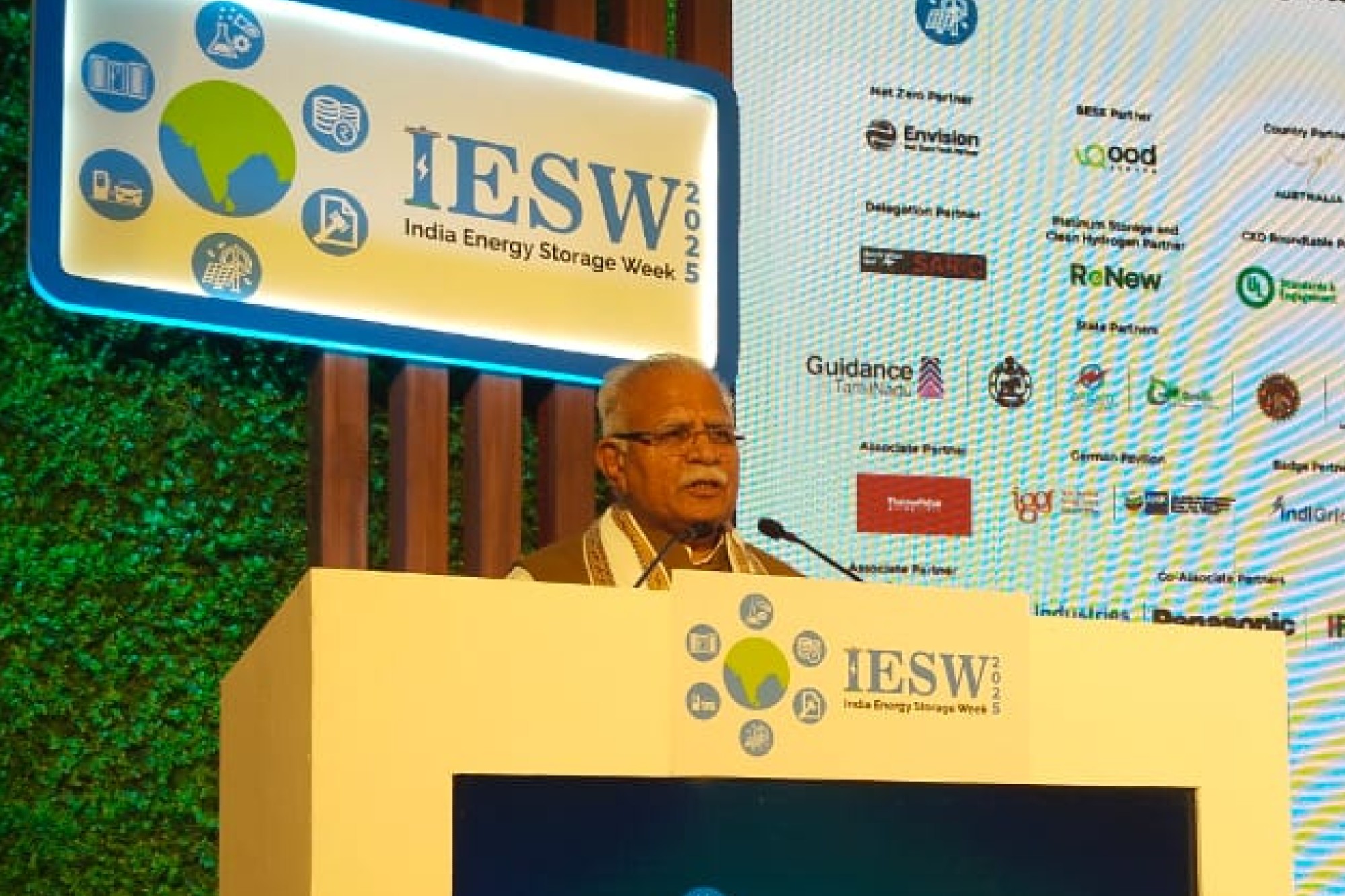India to achieve 74 GW BESS capacity by 2032
By Staff Report July 9, 2025 2:39 pm IST
By Staff Report July 9, 2025 2:39 pm IST

India aims to achieve 74 gigawatts (GW) of battery energy storage system (BESS) capacity and 50 GW of pumped hydro storage capacity by 2031-32. Currently, the country has only 205 MW of installed BESS capacity.
India aims to achieve 74 gigawatts (GW) of battery energy storage system (BESS) capacity and 50 GW of pumped hydro storage capacity by 2031-32. Currently, the country has only 205 MW of installed BESS capacity, according to Union Power Minister Manohar Lal Khattar, who spoke at India Energy Storage Week (IESW) 2025.
Khattar said, “India has made strides in its energy generation efforts. We have now reached almost 50 per cent of our total generation capacity of 472 gigawatts. By the end of this year, India is on track to achieve the 50 per cent renewable energy milestone. Expanding storage infrastructure is essential to stabilise the grid and ensure 24/7 access to reliable, clean energy.”
Speaking on the occasssion, Ghanshyam Prasad, Chairperson of the Central Electricity Authority (CEA) said, “We currently have around 3,300 MW of capacity in the pipeline, which is anticipated to result in 8,500 megawatt-hours (MWh) over the next two years. Moreover, we have around 12,500 MW, equating to roughly 42,000 MWh, under tender. However, the country’s current Battery Energy Storage System (BESS) capacity is meagre, standing at around 205 MW or about 506 MWh. Why am I sharing these numbers? Because starting from 2026-2027, we will need to increase our capacities steadily to reach around 74 gigawatts (GW) by 2031-32.”Citing International Atomic Energy Agency (IAEA) estimates, the world must increase energy storage capacity sixfold by 2030 to meet climate and energy goals. Khattar also emphasised the decrease in energy storage costs from ₹10 lakh to ₹2.5 lakh per megawatt per month within just three to four years. He added that India’s ₹19,744 crore green hydrogen mission aims to produce 10 million metric tons and build 60–100 GW of electrolyser capacity.
We use cookies to personalize your experience. By continuing to visit this website you agree to our Terms & Conditions, Privacy Policy and Cookie Policy.